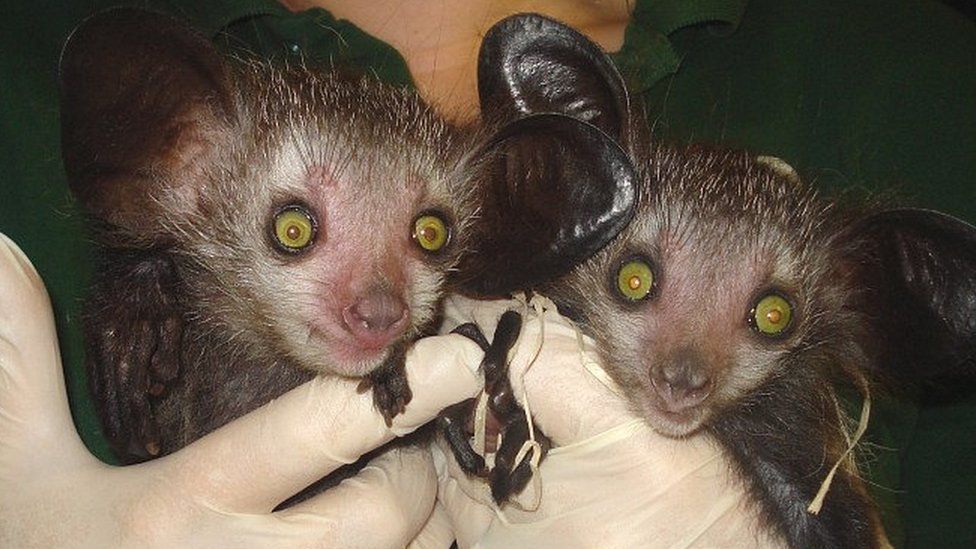Twin aye-ayes born in 'world first' at Bristol Zoo
- Published

Twin aye-ayes - an endangered species of lemur - have been born in captivity at Bristol Zoo for the first time.
Described as a "world first" by the zoo, the twins were born on 10 June but are still too young to be sexed.
Once thought to be extinct, the aye-aye is classified as endangered by conservationists and experts say there may be as few as 1,000 left.
A zoo spokeswoman said: "Their mother was very secretive and we didn't realise she'd had twins straight away."
She said: "It's a world first, so it wasn't what we were expecting but it's amazing, really amazing.
"We wanted to monitor them and make sure they were putting on weight before we announced their arrival."
Found on the island of Madagascar in the Indian Ocean, the first aye-aye bred in captivity in Britain was a female called Kintana who was hand-reared by keepers at Bristol Zoo in 2005.
In 2008, the second of the species born in Britain - Raz - was also hand-reared by keepers at the zoo.
Assistant curator of mammals, Lynsey Bugg, said the twins' mother Sabrina was doing a "great job with her young".
"The twins are physically demanding and it is testament to Sabrina that she and the twins appear to be doing really well," she said.
"Whilst we are keeping a close eye on the group, we try to adopt a hands-off approach and encourage a family dynamic close to one they would experience in the wild."
- Published8 January 2008
- Published23 November 2005
- Published15 April 2005